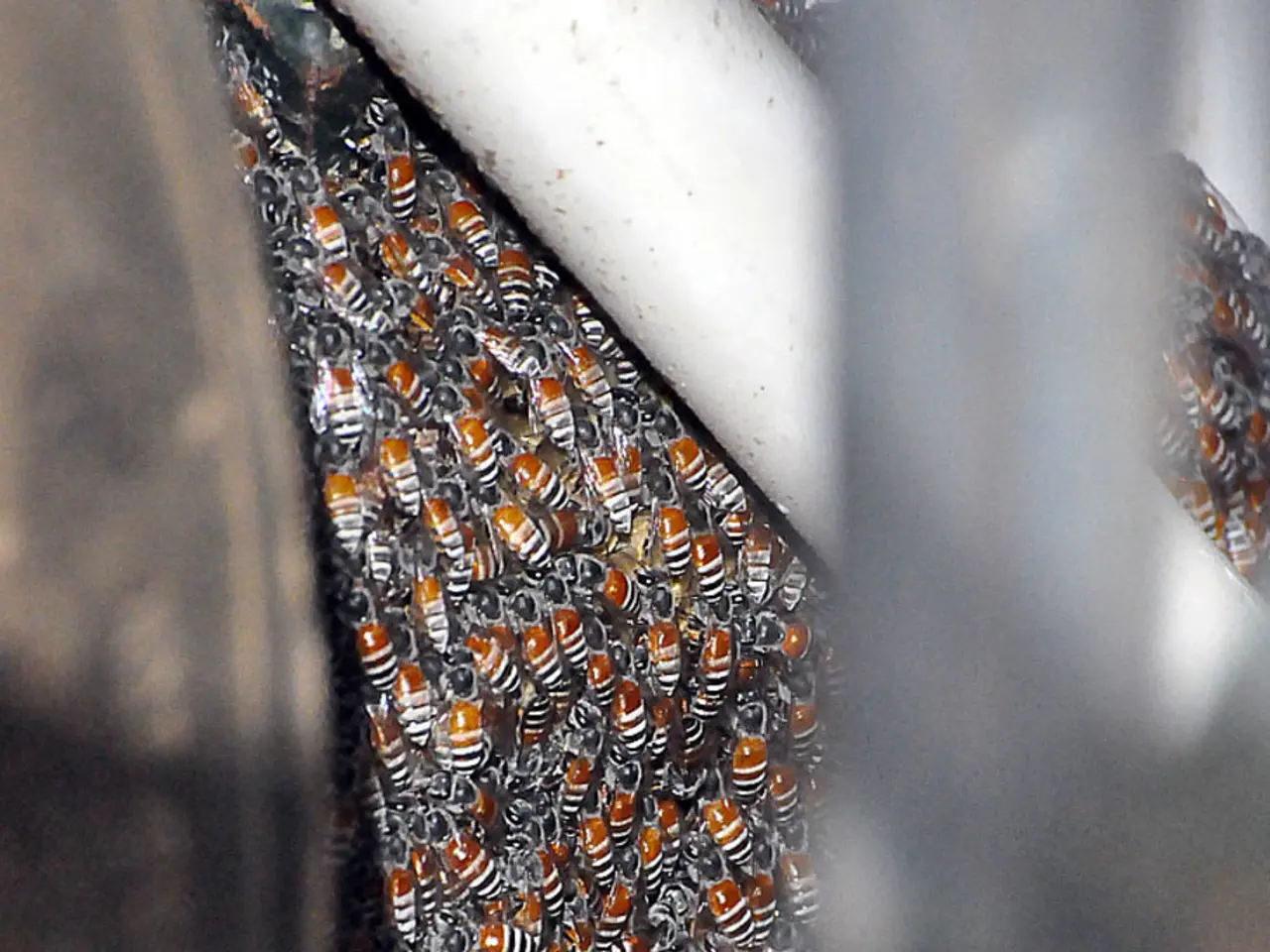Skin Health Enhancement: Advantages, Applications, and Potential Hazards of Honey
### Unveiling the Science Behind Honey's Skin Benefits
Honey, particularly medical-grade varieties like Manuka, has a rich history in wound care and dermatology, with modern research corroborating and expanding on traditional applications. Clinical evidence supports honey's use for several skin conditions, as outlined below.
#### Wound Healing
Honey has proven therapeutic value in wound healing, particularly for chronic wounds and burns. Numerous clinical trials demonstrate that honey dressings accelerate wound closure, reduce infection rates, and minimize scarring in conditions such as burns and diabetic ulcers [1, 5]. These effects are attributed to honey’s antimicrobial properties, which create an inhospitable environment for pathogens [1, 5]. Medical-grade honey continues to be used in hospital settings for certain types of wounds [5].
#### Anti-Inflammatory Properties
Honey's anti-inflammatory effects are supported by its use in reducing postoperative pain and inflammation, as observed in studies involving head and neck surgery patients [1]. The exact mechanisms are not yet fully understood, but honey's bioactive compounds are believed to modulate inflammatory pathways.
#### Acne
While large-scale clinical trials specific to acne are lacking, honey's antimicrobial and anti-inflammatory properties make it a popular ingredient in natural skincare routines [2]. Honey is used in facial cleansers and masks for its ability to reduce breakouts, fight bacteria, and soothe inflammation [2]. The evidence here is mainly anecdotal or based on its known mechanisms, with a need for more rigorous clinical studies.
#### Psoriasis
Honey has been included in treatments for psoriasis, but the evidence is limited and largely indirect [2]. Its moisturizing and anti-inflammatory properties may offer symptomatic relief, but there are no robust clinical trials confirming its efficacy as a primary treatment for psoriasis.
#### Anti-Aging Effects
There is no direct clinical evidence that honey significantly reverses or prevents skin aging. However, royal jelly (a bee-derived product) is under investigation for its potential to promote collagen production and tissue regeneration, which are relevant to anti-aging [1]. Honey's antioxidants and moisturizing properties may also support skin health, but these effects are not well documented in the clinical literature.
#### Treatment of Skin Cancer
Current scientific literature does not provide evidence that honey has any therapeutic effect on skin cancer. While honey's antioxidant and anti-inflammatory properties are beneficial for general skin health, they are not recognized as treatments for malignancies. It is essential to discuss any potential skin cancer treatments with a healthcare professional.
#### Summary Table: Evidence Levels for Honey in Skin Conditions
| Condition | Evidence Level | Notes | |-------------------------|---------------------------|-----------------------------------------------------------------------| | Wound Healing | Strong clinical support | Accelerates healing, reduces infection, used in hospitals [1, 5] | | Anti-inflammatory | Moderate clinical support | Reduces postoperative pain/inflammation; more studies needed [1] | | Acne | Anecdotal/mechanistic | Antimicrobial, anti-inflammatory; clinical trials lacking [2] | | Psoriasis | Anecdotal/mechanistic | Possible symptomatic relief; no strong clinical data [2] | | Anti-aging | Minimal clinical support | Royal jelly under study; honey’s role unproven [1] | | Skin cancer | No evidence | Not recognized as a treatment |
#### Conclusion
**Honey, particularly medical-grade honey, is strongly supported by clinical evidence for wound healing, particularly in chronic wounds and burns, due to its antimicrobial and tissue-repair properties** [1, 5]. Its anti-inflammatory effects are also documented, though less extensively [1]. For acne and psoriasis, honey's use is largely based on its inherent properties and traditional use, with limited direct clinical evidence [2]. There is no substantial evidence supporting honey's role in anti-aging or skin cancer treatment. Royal jelly, a related bee product, shows preliminary promise in skin regeneration, but further research is needed [1].
- In the context of health-and-wellness, science has predictive capabilities, suggesting that continued research might unveil new uses for medical-grade honey beyond skin care.
- Although nutrition plays a crucial role in overall wellness, the type of honey consumed, like Manuka honey, may not directly contribute to weight management or obesity prevention.
- Concerning fitness-and-exercise, it’s essential to note that honey is not typically viewed as a performance-enhancing substance; its primary role lies in skin care and wound healing.
- For mental health, while the relaxation processes involved in certain skincare routines utilizing honey can contribute to stress relief, it is not a primary treatment for mental health disorders.
- In terms of skin-care, it is vital to seek healthcare professional advice before incorporating honey into a skincare routine, especially for people with conditions like COPD (Chronic Obstructive Pulmonary Disease) or diabetes, as they require careful consideration of potential interactions.
- Lastly, comprehensive health-and-wellness includes various aspects, and one must prioritize a well-rounded approach that consists not only of skincare routines but also exercise, nutrition, and mental health care.





